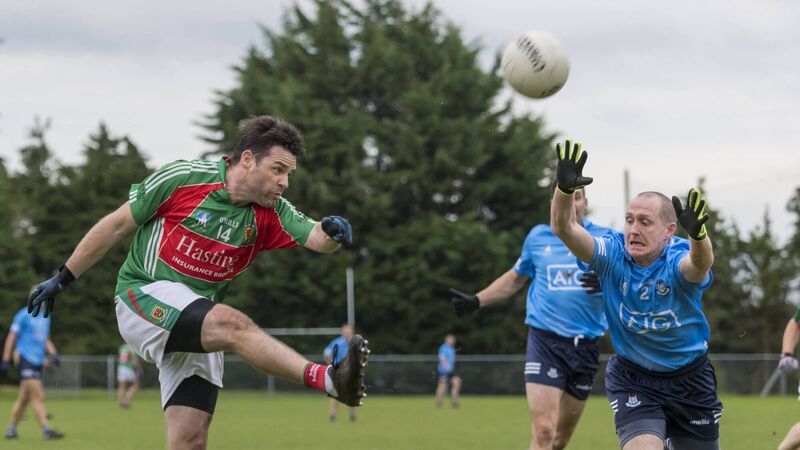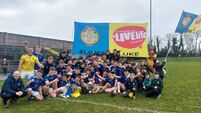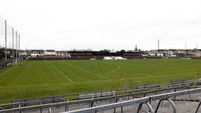Paul Rouse: Ageing gracefully - Masters football proving to be best in class

Former Mayo footballer Brian Moloney gets his shot in despite the attention of Dublin cornerback Mick Coyne in the All-Ireland Masters semi-final played in St Brigid’s Club, Kiltoom, Co Roscommon, on Saturday, October 16.
Most people stop playing football too soon in their lives.











